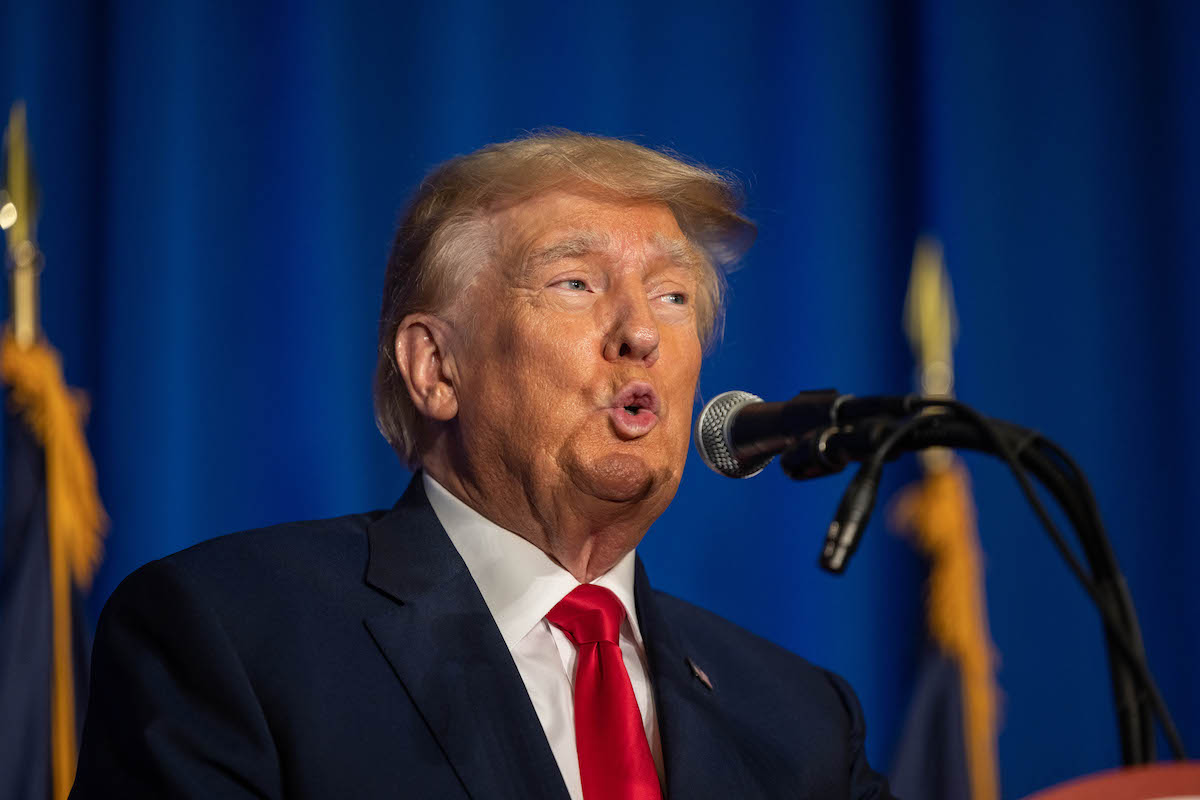Lawsuits were filed, think pieces were published, and constitutional experts weighed in—all over the assertion that, according to a little-used section of the 14th constitutional amendment of the United States, former President Donald Trump should legally be disqualified from appearing on a ballot for public office. However, the top election official in New Hampshire, where the first Republican primary election is slated to take place, and where at least one lawsuit was filed, said Wednesday that he will allow Trump to appear on the ballot.
New Hampshire Secretary of State David Scanlan, a Republican, announced via press release that he won’t invoke the 14th Amendment, and doesn’t consider Trump’s right to run as being up for debate. “As long as he submits his declaration of candidacy and signs it under the penalties of perjury and pays the $1,000 filing fee, his name will appear on the presidential primary ballot,” he said, adding that New Hampshire law says anyone who fills those requirements “shall be printed on the ballots,” and that “language is not discretionary.”
The argument that Trump be disqualified from public office comes from Section 3 of the 14th Amendment, where the language prohibits anyone who pledged to support the constitution and later “…engaged in insurrection or rebellion against the same, or given aid or comfort to the enemies thereof,” (ahem) should be barred from holding public office. This Civil War-era amendment hasn’t seen much play in the last 160 years. Still, it’s what the Constitution says. Even stoic Republicans have been arguing for its legality.
The lawsuit in New Hampshire was filed by a longshot Republican primary candidate, and another similar suit has been filed by a longshot Republican primary candidate in Maine. More liberal interest groups are filing lawsuits arguing that Trump be left off ballots in additional states, including Minnesota and Colorado, with more and more constitutional experts arguing that the amendment should legally stand.
What’s challenging to decide is that the amendment mentions why a person can be disqualified, but does not mention who should have the power to disqualify them, i.e., an elector. And according to reporting from the Associated Press, electors are showing signs of balking at the prospect of personally attempting to exercise that power.
“The Office of the Minnesota Secretary of State does not have legal authority to investigate a candidate’s eligibility for office,” the Minnesota State Secretary, a Democrat, said in a statement last week. He added that his office could only do so if compelled by the courts. It’s certainly possible that we’ll see this issue turn up in multiple states, and eventually in the Supreme Court.
(featured image: Scott Eisen/Getty Images)









Published: Sep 14, 2023 05:34 pm